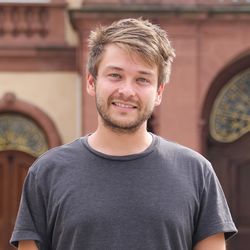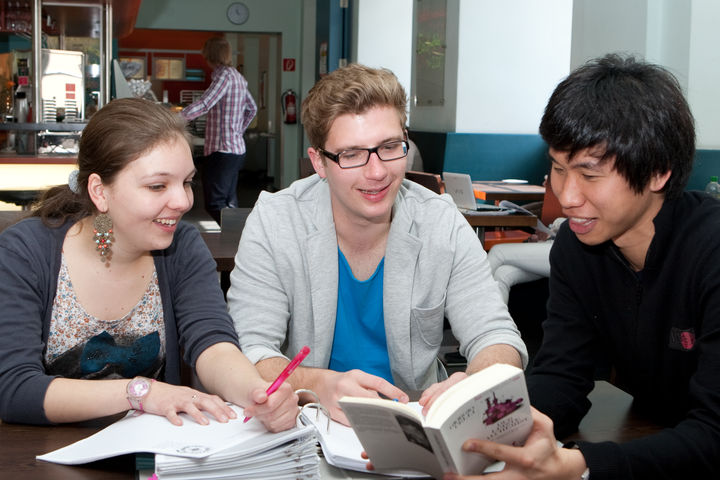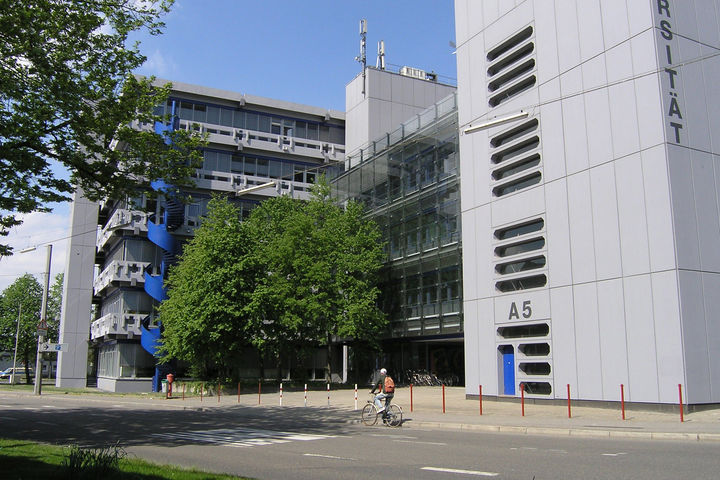Political Science at Germany’s #1
Become an excellent teacher by studying in an international environment
In what way does terrorism change our society? Do social media have an impact on political participation? How does a government affect the life of individuals? And how will I be able to get these things across to school pupils?
The German-taught teacher education programs in Political Science at the University of Mannheim provide the answers to these questions!
By cooperating with leading research institutions, you will acquire the tools to understand political processes, to analyze them, and to pass this knowledge on to pupils using sound instructional techniques. Our programs offer a vast array of practice-oriented courses that prepare you to become a teacher. We will also support you if you want to complete a period of study abroad, which is possible for up to one year. You can choose from more than 100 exchange programs.
Please note: the documents listed on this page are only available in German.
What is Political Science?
Political Science at the University of Mannheim
Political Science in Mannheim is all about political processes. This includes analyzing political systems, explaining political decisions, studying political actors, and calculating election results. Research at our Department covers a variety of areas, including:
- European integration
- Political violence and civil wars
- Globalization
- Political communication
- Political participation
- Voter behavior
- Parties and political culture
- Political actors and institutions
- Election systems and development of democracy
- Political economy
In addition, the Department of Political Science has earned an international reputation for its strong focus on empirical-analytical research using quantitative methods, such as computer-assisted data analysis. That is why we offer special courses that allow you to practice carrying out your own research projects. Among other things, you will learn how to develop a concept for a survey, draw up questionnaires, devise measuring instruments, and set up research designs and schedules. The practical implementation of your study, such as data collection and analysis, is also part of these courses.
What is Political Science NOT?
Not limited to current political affairs
You are interested in current political affairs? Excellent! But studying Political Science means much more than just discussing the news. We teach you sound methods that you can use to scientifically analyze politics and, much more importantly, to predict what is going to happen in the future. Political Science studies political processes and explains why voters and politicians make certain decisions.
No training to become a professional politician
Many research activities focus on political parties, but this doesn’t mean that you need to be politically active. With a degree in Political Science, you can be anything from a civil servant to a private sector employee and from a market researcher to a high-level politician. You can also choose to focus on the many other actors and areas that play a major role in Political Science.
What are quantitative methods?
Empirical social research concerns itself with the systematic collection of data on interdependences in society by way of observations, interviews, and experiments, and analyzes them using different statistical methods.
Quantitative methods employed in empirical social research comprise all procedures that enable the numerical representation of empirical facts on the one hand and that support conclusions drawn from empirical findings using inferential statistics on the other. Quantitative methods include sample selection, data collection, and data analysis, for example, and can be used to formulate new hypotheses as well as to test the validity of previously proposed hypotheses.
During the program, you will first take the mandatory module Methods and Statistics. It addresses the following topics: drawing up surveys, developing questionnaires, devising measuring instruments, and setting up research designs and schedules, as well as the practical implementation of a study, such as data collection and analysis using statistical methods. In the advanced module, you will attend exercise courses in methods, which require you to carry out your own research projects.
Five good reasons for studying Political Science in Mannheim
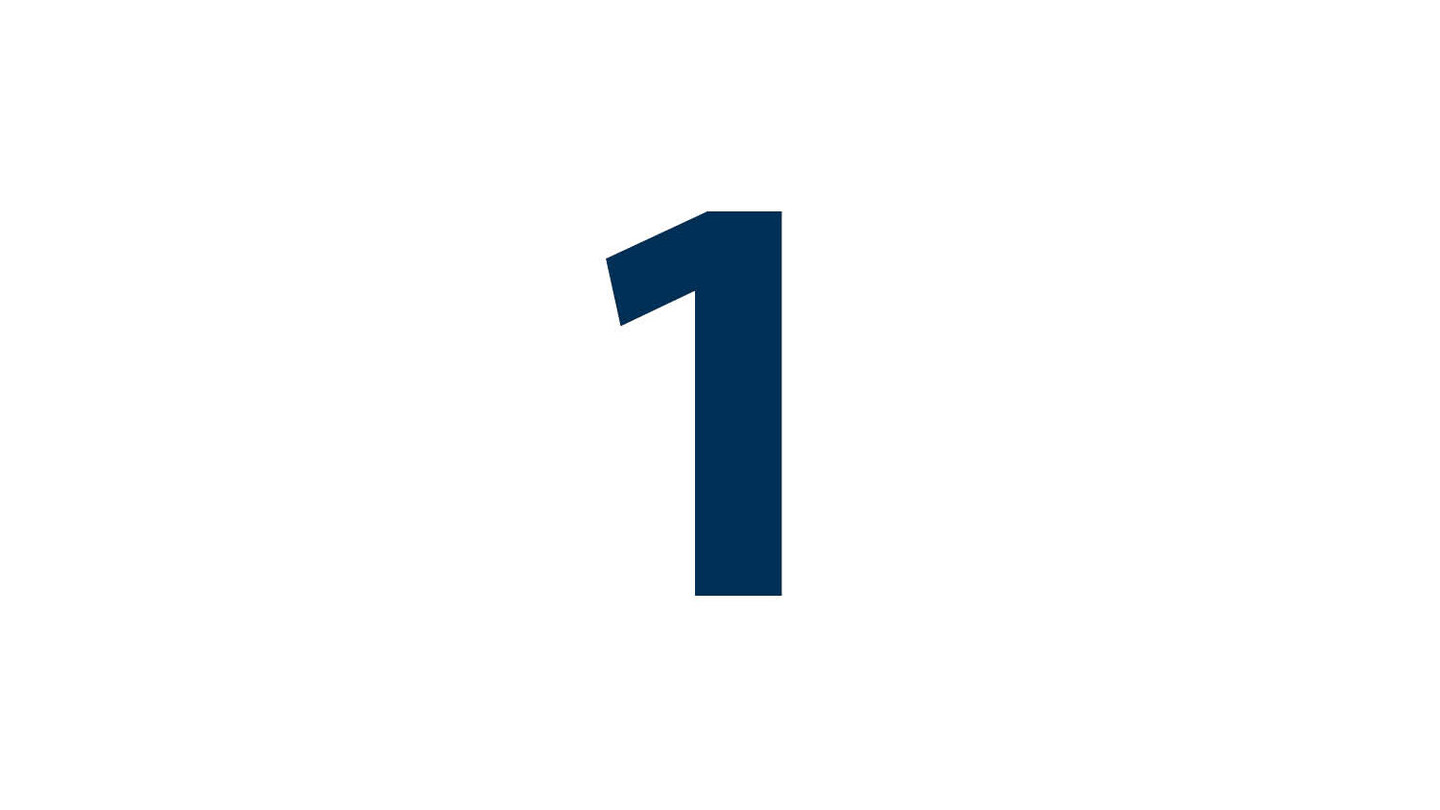
Training in a broad range of skills
(general principles of political science, methods, statistics, and didactics)
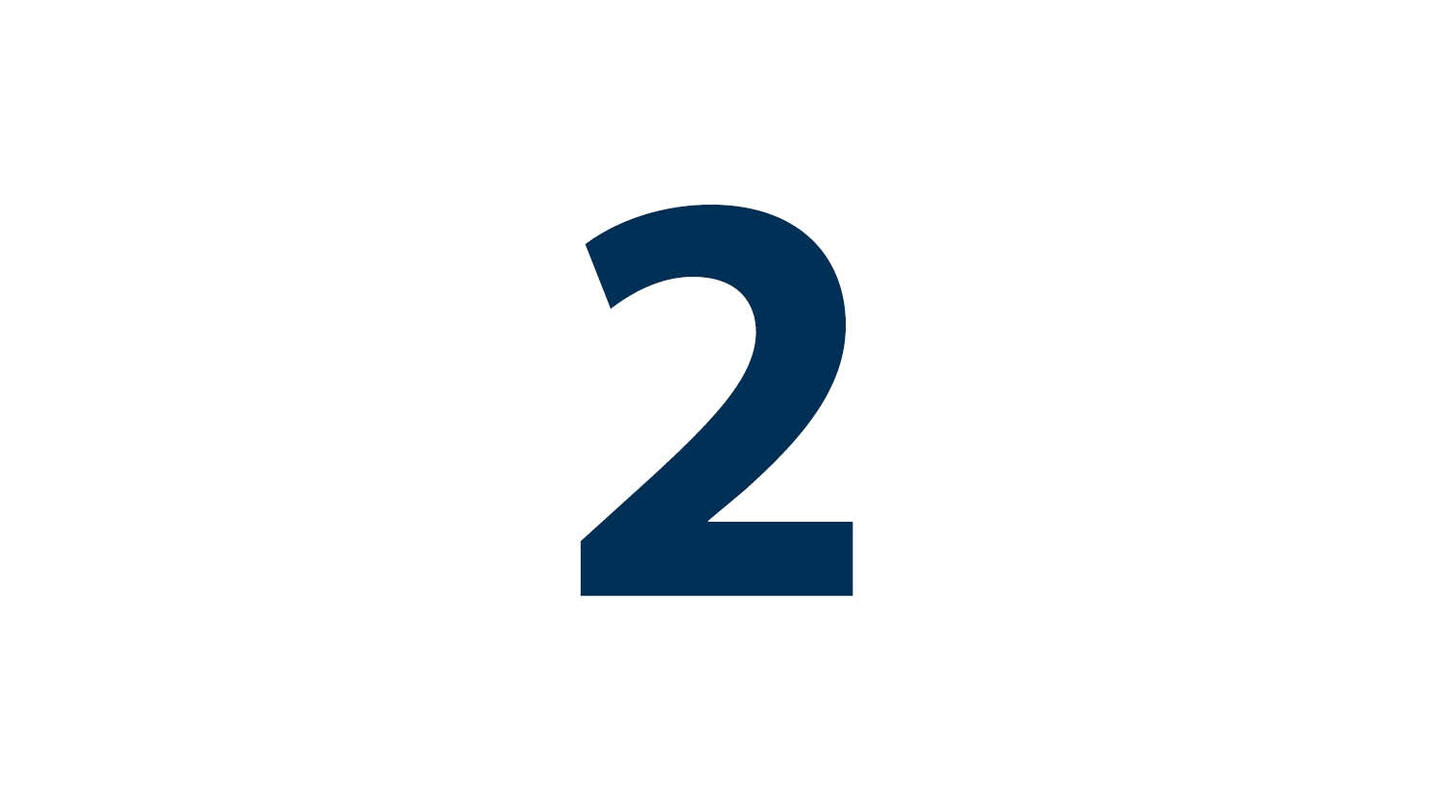
Stay abroad at one of our many prestigious partner universities
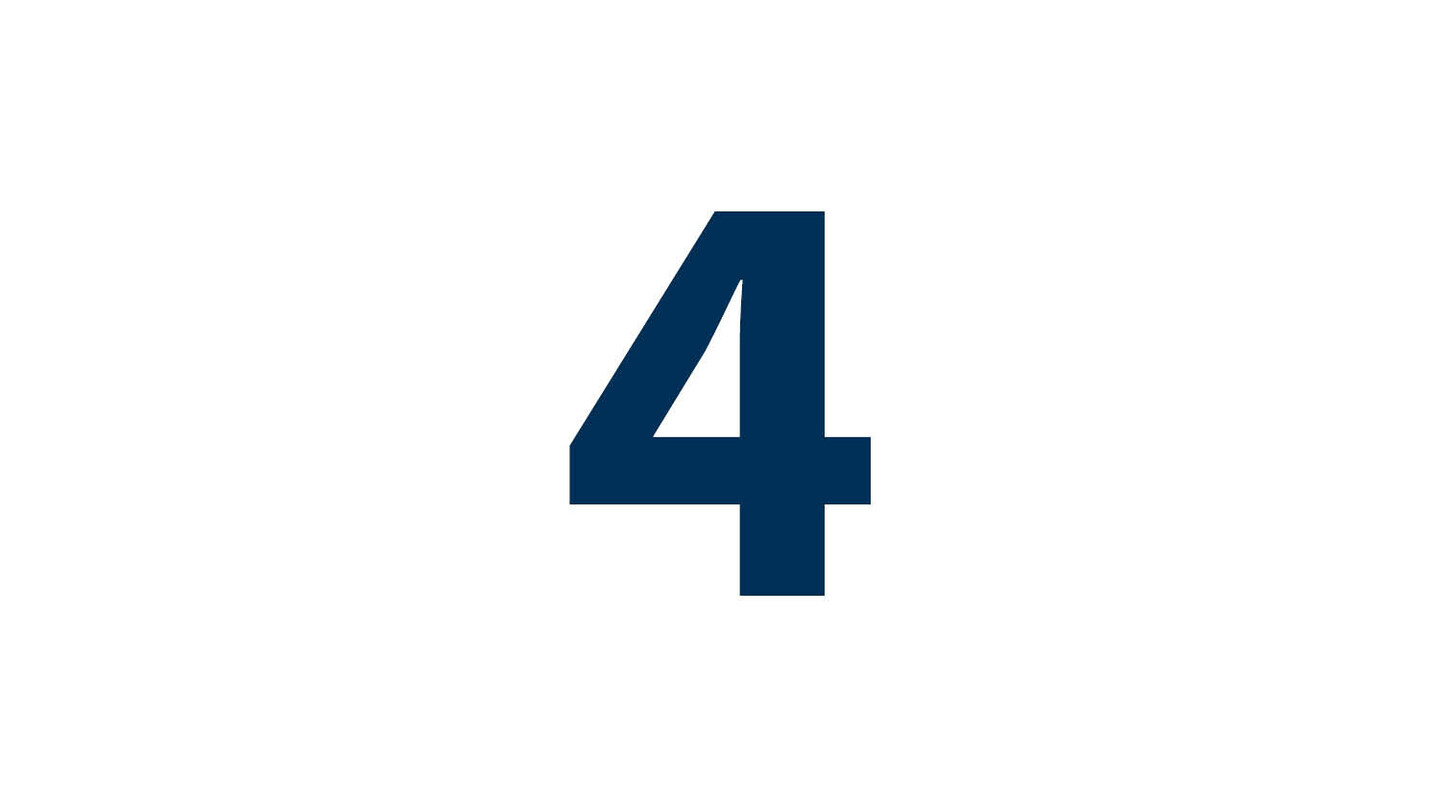
Individual support by the program managers
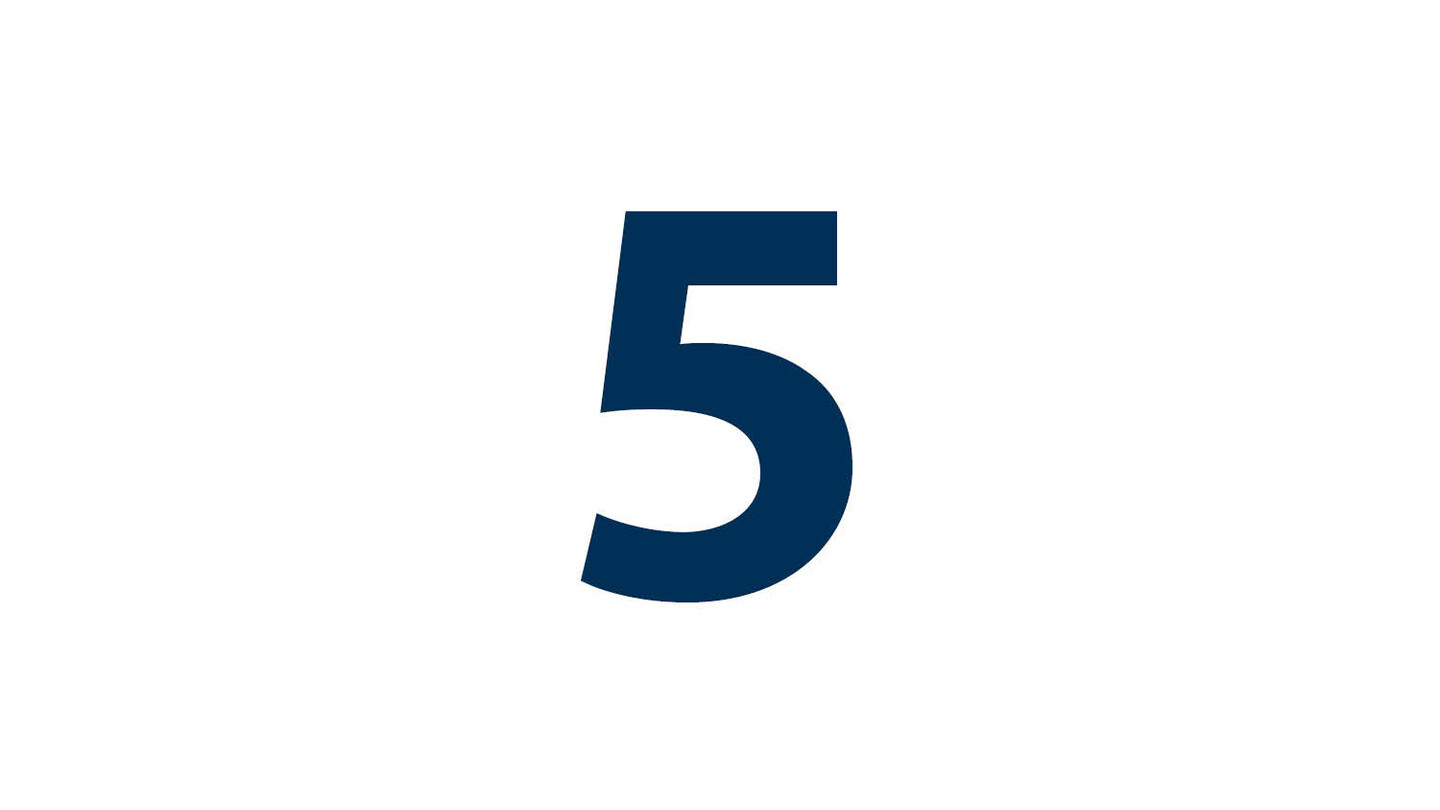
Courses offered by leading political scientists from all over the world
The programs
Bachelor’s program in Teacher Education: Political Science
Students of the bachelor’s program in Teacher Education: Political Science at the University of Mannheim will acquire sound knowledge of political science as well as didactic and educational skills. Apart from Teaching Methodology and Education Sciences the program includes:
- Mandatory modules
Modules on the basic principles of political science, methods and statistics, political institutions, and international organizations - Elective modules
Students must choose one out of the following three modules:
The module International Relations focuses on European integration, different areas of international cooperation, and conflict research. If you want to learn more about the research area Human Rights and Conflict Research, you can watch this interview with Prof. Sabine Carey, Ph.D. (in German).
The module Political Sociology looks at how politics and society in Europe are interconnected, with emphasis being placed on voter behavior, political participation, political communication, and theories of political decision-making.
In Comparative Politics, students will compare political institutions in different countries and gain a profound understanding of them. Coalition governments, legislation, and elections are of particular interest in this area.
For an overview of the course contents and skills you are meant to acquire during the program, please refer to the module catalog (PDF, 572 kB). The examination regulations (PDF, 499 kB) provide the legal foundation for the program.
- Mandatory modules
Master’s program in Teacher Education: Political Science
Students of the master’s program in Teacher Education: Political Science will build on the knowledge and skills acquired during the bachelor’s program. By choosing one out of the following three modules, they will focus on a specific area of political science.
- International Relations: Courses focus on European integration, theories of international relations, and different areas of international cooperation as well as on conflict research. If you want to learn more about the research area Human Rights and Conflict Research, you can watch this interview with Prof. Sabine Carey, Ph.D. (in German).
- Political Sociology: This area looks at how politics and society in Europe are interconnected, with emphasis being placed on voter behavior, political participation, political communication, and theories of political decision-making.
- Comparative Politics: In this module, students will compare political institutions in different countries and gain a profound understanding of them. Coalition governments, legislation, and elections are of particular interest in this area.
Students who have passed examinations in elective modules during their bachelor’s program at the University of Mannheim must not choose the same modules again in their master’s program.
For an overview of the course contents and skills you are meant to acquire during the program, please refer to the module catalog (PDF, 525 kB). The examination regulations (PDF, 986 kB) provide the legal foundation for the program.
Master of Education Extension Subject: Political Science
Studying an extension subject in your teacher education program enables you to complement the two subjects you chose in the bachelor’s and master’s program in Teacher Education with a third subject, in this case Political Science. You may apply for admission to the Master of Science Extension Subject program and also start taking courses in it while still pursuing your bachelor’s degree (you must have obtained at least 24 ECTS credits in a bachelor’s program with a focus on teacher education). The examination regulations (PDF, 1 MB) provide the legal foundation for the program.
Application
Requirements
- Are you not only interested in current affairs, but also in long-term political trends, especially in Europe?
- Do you have good analytical and mathematical skills? Do you like working with numbers and are you keen to learn standard statistical methods?
- The amount of literature you are expected to read exceeds the amount typically covered in the final years of your upper secondary education. To be able to keep up with weekly reading requirements, you need to be well organized and hard working. Would you say that about yourself?
- Are you prepared to read most of the literature in English?
You should demonstrate your interest in learning about interdependences in society and analyzing them using statistical methods, be committed to your studies, and be able to work independently. Apart from that, your application for admission to the bachelor’s program in Teacher Education must include the following:
- grade average achieved in your university entrance qualification (= Abitur or equivalent qualification),
- the final grades achieved in Mathematics and English,
- optionally: other relevant work experience and extracurricular activities.
The master’s program in Teacher Education and the Master of Education Extension Subject program are not selective.
How to apply
Bachelor’s program in Teacher Education: Political Science
The bachelor’s program in Teacher Education: Political Science starts in the fall semester. The University of Mannheim accepts applications every year between 15 May until 15 July. You must apply online. After that, you need to print the application form and send it by post to the Admissions Office of the University of Mannheim. Your letter must include any other documents required for your application and arrive at the university by 15 July at the latest. If you have any questions on the application process, please contact the Admissions Office.
For comprehensive information on the application process, please see the guide to applying for admission to a bachelor’s and teacher education program (PDF) (particularly subsection 2.2.1).
Master’s program in Teacher Education: Political Science
The master’s program in Teacher Education: Political Science starts in the fall semester. The University of Mannheim accepts applications every year 01 April until 31 May and 1 October until 15 November . You must apply online. If you have any questions on the application process, please contact the Admissions Office.
Political Science as a further subject in the master’s program in Teacher Education
The University of Mannheim accepts applications every year between 15 March and 31 May. You must apply online.
Next steps
Please read the Admissions Office’s guide to applying for admission to a bachelor’s and teacher education program (PDF) carefully (and pay particular attention to subsection 3.1.7.). It includes everything you need to know about the application process and the dispatch of official letters of admission.
Please go to the Admissions Office’s website for more information.
Academic advising
Do you have any more questions? We’re happy to advise you!
If you have any questions on your degree program (course contents, program structure, stays abroad), don’t hesitate to contact our program managers. For questions relating to the application process, please contact the Admissions Office.
Academic advisor for Political Science
N. N.
Program Manager B.Ed./M.Ed. and M.A. Political ScienceUniversity of Mannheim
School of Social Sciences
A 5, 6
Building A – Room A 418
68159 MannheimGeneral academic advising on teacher education programs
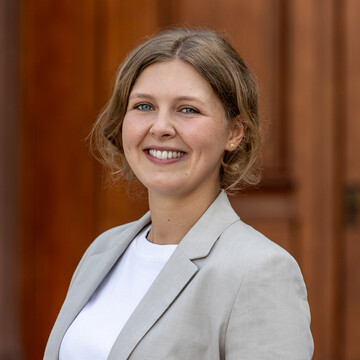 Credit: Alexander Münch
Credit: Alexander MünchLaura Grabarek, M.A.
Program Manager for Teacher Education ProgramsUniversity of Mannheim
School of Humanities
Schloss – Room EO 282
68161 MannheimConsultation hour(s):
Tue 10–12 a.m. – Office consultation hours
Wed 10–12 a.m. – Online consultation hours
Please book an appointment for the consultation hours via https://www.phil.uni-mannheim.de/en/office-hours-teacher-education-programs/Admissions Office
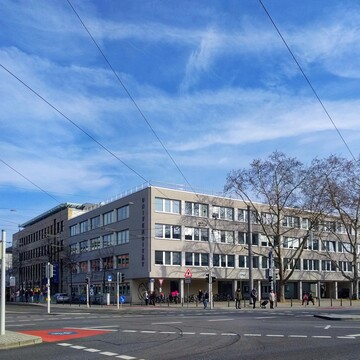 Credit: Anna Logue
Credit: Anna LogueAdmissions Office
University of Mannheim
L 1, 1 – Room 157, 158
68161 MannheimAdvising for international students
Team International Degree-Seeking Students
University of Mannheim
Division II – Student Affairs
International Office
L 1, 1 – Room 108/109
68161 MannheimE-mail: degreeseekingsuni-mannheim.deConsultation hour(s):
Book an appointment for an individual consultation:
https://www.uni-mannheim.de/en/about/centers-institutions-affiliates-and-partners/international-office/consultation-hours-international-degree-seeking-students/Opening hours:
Visit our offices without an appointment on Tuesdays from 9–11 a.m. (open office hours).

